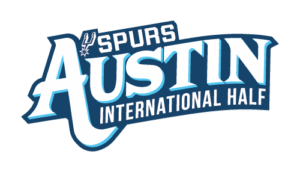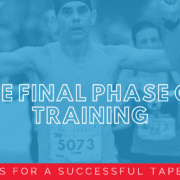Taper Tips for a Successful 3M Half Marathon
These taper tips are crucial for race day performance
The Taper. For those unfamiliar, tapering is referring to the reduced volume and intensity of workouts before race day. While some runners find it hard to scale back after so much time dedicated to training, others find themselves glued to their favorite couch. But doing too little or too much during this time period can compromise all your hard work. Make sure you are at the top of your game by following these tips between now and race day.
Sleep
This may be the best thing you can do for yourself at this time. Experts recommend sleeping eight to nine hours per night. To start, choose a consistent time that you are in bed, this may or may not include actual sleep. This will signal to your body that rest is important and hopefully lead to more shut-eye.
If you have a favorite show that you just don’t want to miss, see if you can record it to watch after the race. It will be great to have something else to “marathon” after your race.
Instead of focusing on trying to get a good night sleep the night before, try for two nights before. Pre-race jitters can sometimes leave us with the “I am not even sure if I slept at all” feeling the night before. But don’t let this bother you. One poor night’s sleep shouldn’t affect your performance if you have tapered well in other aspects.
Reduce work stress
While it might be out of our hands, setting yourself up with an easy week at work can have a big impact on your energy going into race day. So if there is a project that needs to be done put in the extra effort now or see if it can be completed after race day. Take time to find a quiet place to meditate for 10-15 in the morning or evening.
 No new workouts
No new workouts
Now is not the time to get a weird sore spot under your ribs because your friend convinced you to try the new barre class. Stick to what you know and focus on less intense and less volume for each workout. Keep your runs to under 30 minutes. It’s fine to do some easy cross-training on non-running days, as long as the activity doesn’t make your muscles sore or have the potential to cause injury. If you don’t want to exercise on days you don’t run, that’s okay, too.
Example of a week out workout: 10-min warm-up jog / no more than 3 miles at half-marathon goal pace / 10-min cool-down jog
Nutrition
Skip the pizza and beer for now. Focus on a diet that balances moderate carbohydrates from whole food sources, quality protein, and healthy fat. You may also want to keep a close eye on your calorie intake. While you are used to high-intensity training and the extra food that comes with it, if you don’t watch what you eat, the pounds can sneak on in these last weeks, which is less than optimal for race day.
Avoid eating that can affect your sleep quality. This includes eating large meals within 1.5 hours of going to bed as well as spicy foods or large amounts of protein.
Now is also a good time to make sure you are well hydrated. It is recommended to drink 8-10 glasses of water a day. You can also add electrolytes from nuun, to get your body ready for race day hydration. You can also try the on-course fuel with Gatorade Endurance gels.
Race Morning
By starting now, you are setting yourself up to be ready race morning. The last advice we have is to arrive at least 90 minutes before the start. Walk around as a light warmup, and then follow the Camp Gladiator trainers as they lead a pre-race warm-up at 7:15 at the start line.








